These days, Seattle’s real estate market is on a hot streak. A low inventory combined with a robust and growing job market is driving the region’s demand for real estate sky-high. With an outlook like this, it’s a phenomenal time to be a seller, but, if you’re a buyer, it’s easy to be tempted to rush through a sale and squeeze in an offer immediately. Of course the market demand necessitates a certain level of swiftness, but it’s worth considering the pros and cons of a pre-inspection to ensure you’re getting the right house for the right price.
What is a pre-inspection?
A pre-inspection is exactly what it sounds like: an inspection undertaken prior to making an offer that aims to uncover any potential defects. The process has the same scope of a standard home inspection, and buyers who move forward with a pre-inspection can choose to waive the inspection contingency, a negotiated agreement allowing the buyer to inspect the home shortly after closing a deal.
Pros
Obviously, the main benefit of completing a pre-inspection is that it uncovers any potential problems. In a worst-case scenario, you might discover a hidden catastrophe and avoid buying a house with significant defects. In a less dramatic situation, you might find minor flaws, enabling you to counter a seller’s price with a competitive (and well-informed) offer. All in all, a pre-inspection gives you knowledge that’s helpful when it comes to negotiating a deal.
However, as mentioned above, completing a pre-inspection also allows the buyer to waive an inspection contingency. This point is significant because, if an inspection contingency produces unfavorable findings, the buyer has the right to cancel the deal, an irksome development for any seller. Buyers who make an offer after a pre-inspection can waive the inspection contingency, however, and so these kinds of deals are solid gold for most sellers. In fact, most sellers will actually encourage pre-inspections, and so buyers who go through with them are often more competitive than those who don’t.
Cons
The main drawback to conducting a pre-inspection is that there’s no guarantee that you’ll actually secure the house. Indeed, another buyer could negotiate a successful offer while you’re waiting for the results of your inspection. Alternatively, you might finish an inspection, present the seller with an offer, and then face a rejection. In both these cases, you’ve just spent money on an inspection for a house that you will not ultimately own (which, it goes without saying, is less than ideal).
The bottom line
In the end, choosing whether or not to complete a pre-inspection is up to the buyer. While going through with the inspection has plenty of benefits, such as enabling you to make a more competitive offer, it could result in missing the opportunity to secure a house, especially in a market (like Seattle’s) with high demand and low inventory. As such, it’s helpful to be transparent with the seller and assess each individual situation as it comes, as different circumstances might call for a different course of action. Some sellers, for instance, might have already completed an inspection, which could make doing your own inspection unnecessary. In any case, it’s important to know both the pros and cons of pre-inspections so that you can use this knowledge to successfully navigate any real estate transaction.
Sources:
http://www.realtor.com/news/real-estate-news/should-we-allow-an-inspection-before-the-offer/
http://www.seattletimes.com/business/real-estate/king-county-home-prices-hit-a-new-high/
http://www.trulia.com/guide/home_selling/before_selling/using_the_power_of_pre_inspection/
